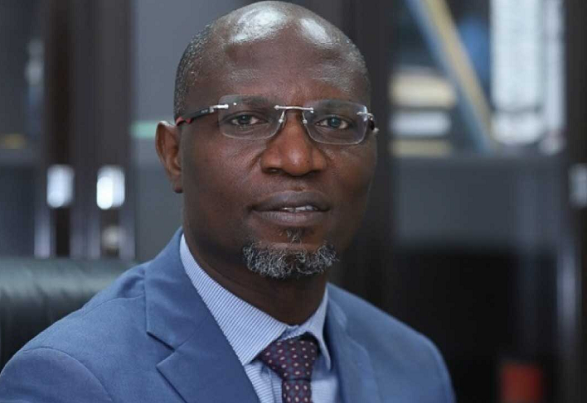by Jude Ayua
Nigeria’s Securities and Exchange Commission (SEC), on Monday 16 December 2024, published the “Proposed Amendments to Rules on Digital Assets Issuance, Offering Platforms, Exchange and Custody” (Digital Assets—DA Rules). The Rules, introduced in 2022 and revised 27 September 2024, will be effective from 30 June 2025. The amendment, which is the second proposed amendment under the leadership of the Director-General, Emomotimi Agama, adds new provisions and removes one, stating the justification for each action.
In the amendment, the SEC acknowledges digital assets as alternative investment opportunities for the public and notes the importance of ensuring they uphold investor protection, public interest, market integrity, and transparency. The aim of regulation, according to the SEC, is to establish standards that promote ethical practices and foster a fair and efficient market. The SEC notes in the proposed amendment that the Rules supersede the SEC “Statement on Digital Assets and their Classification and Treatment” in September 2020. Key amendments to the Rules include the following.
Definitions
The amendment introduces new terms including “Airdrop,” “Angel Investor,” “Asset Tokenization,” “Custodial Wallet Provider,” “Digital Token,” “Electronic money token,” “Financial Influencer,” “Initial Token offerings (ITO),” “Investment Advisory on Virtual Assets,” “Over-the-counter (OTC) Trading of Virtual Assets,” “Stablecoin,” “Virtual Asset Market,” and “Virtual Asset Wallet Providers.”
Classification and Treatment of Digital Assets
- Virtual Assets or Crypto-tokens: cryptocurrencies and stablecoins;
- Digital securities: tokens representing real-world assets or financial entitlements like dividends or interest);
- Virtual assets other than digital tokens: stablecoins and utility tokens listed on a DAX; and
- Derivatives and Collective Investment Funds of virtual assets, security tokens, and utility tokens.
Applicability of the Rules
The SEC Rules apply to:
- Digital asset-related activities within Nigeria or involving Nigerian investors and other blockchain-based offerings.
- Virtual assets issued as investment instruments referencing currencies or assets, asset-referenced tokens, and other digital assets.
- Investment services related to digital assets, such as custody, brokerage, portfolio management, and advisory services.
- Individuals or corporations involved in any Blockchain Investment-based activity or services in the Nigerian Capital Market.
- Virtual Asset Service Providers (VASPs) offering investment and securities business activities in Nigeria or services to Nigerian consumers.
- Foreign or non-residential issuers or sponsors of digital assets.
- Foreign or non-residential operators targeting Nigerian investors directly or through subsidiaries, agents, or intermediaries, using promotions, publications, or direct emails in Nigeria.
The SEC noted the classification of digital assets and applicability of the Rules aim “to provide more details and clarity to the market in respect of Digital assets regulation in Nigeria.”
Read also: Nigeria’s Investment and Securities Bill classifies virtual assets as securities.
Registration of Foreign VASPs
The SEC proposes to include the registration of a foreign VASP, such as a DAC, and grant recognition status if its primary jurisdiction is a member of International Organization of Securities Commissions (IOSCO), West Africa Regulators Association (WASRA), or has a reciprocal agreement with Nigeria.
Such a VASP must have authorization to operate in its foreign jurisdiction having regulatory arrangements with the SEC for enforcement and supervision, and must be in the best interest of Nigeria to register the foreign VASP.
The SEC stated the proposed registration of foreign VASPs aims “to provide for certain critical services that may not be available and to encourage transfer of expertise/skills and enhance cross border collaboration.”
VASP’s Board
The amendment mandates VASPs to have a Board with a minimum membership of 5, subject to the SEC’s approval before registration with the Corporate Affairs Commission. The Board must have the following committees: Nomination and Governance, Remuneration, Audit and Risk Management. 60 percent of the Board members must be of Nigerian origin.
Advertisement, Marketing, and Promotion
The amendment introduces a key provision that may address online promotion of fraudulent crypto schemes. It requires the SEC’s prior approval for all advertisements, marketing, or promotions about digital asset products. The SEC must confirm the mentions of awards before publication. Endorsements in advertisements must come from individuals who have used the product or service and disclose if they are compensated. Advertisements must be accurate and not exaggerated asset performance or promise rapid returns.
VASPs must get approval from the SEC before engaging third parties to promote digital assets. Social media influencers must obtain prior authorization from the SEC before promoting digital assets. Financial Influencers (FinFluencers) must verify that the VASPs they promote are licensed by the SEC. They must also disclose if they are paid to promote digital assets, with penalties for non-disclosure (up to N10 million fine, three years imprisonment, or both).
Registration Process for VASPs
A VASP can apply for registration with the SEC for various functions, including: Digital Assets Offering Platform (DAOP), which facilitates fundraising through digital asset offerings using distributed ledger technology; Digital Assets Exchange (DAX), an electronic platform for trading digital assets via DLT; Digital Assets Custodian (DAC), an electronic vault for safekeeping or managing virtual assets; and Digital Assets Intermediary (DAI), which facilitates digital asset transactions on behalf of clients.
Accelerated Regulatory Incubation Program (ARIP)
To register, VASPs must first complete an initial assessment form through the SEC ePortal. Eligible applicants can receive approval through the ARIP, which grants an approval-in-principle (AIP) for up to 12 months. After this period, qualified VASPs may transition to full registration by meeting all necessary requirements set by the SEC.
Read also: Nigeria’s SEC issues ‘Approvals-in-Principle’ to digital assets exchange firms.
Financial Requirements
The amendment increases the financial requirements for the registration of VASPs. For example, it raised the minimum capital for DAOPs to ₦500 million, the registration fee: ₦50 million; and processing fee: ₦5 million. Also, the minimum capital for DAX: Over-the-Counter (DA OTC), DAC, and Digital Broker Model is ₦1 billion, registration fee: ₦100 million; and processing fee: ₦10 million. For DAIs, the total cost to register as a Broker/Dealer is ₦500 million; ₦300 million for a Portfolio Manager; and ₦100 million for an Investment Adviser. Minimum Capital to participate in ARIP is ₦10 million; registration fee: ₦10 million; and processing fee: ₦2 million. Contravention of the provisions shall attract penalties up to ₦5 million.
Requirement for Issuance of Digital Assets
Issuers of digital securities and asset-referenced tokens in Nigeria must be locally incorporated companies with primary operations in the country. They must maintain a minimum capital of ₦500 million to ensure market integrity and investor confidence, raising funds exclusively through a DAOP. Stable-value token issuers must be financial institutions having a no-objection approval from the Central Bank of Nigeria (CBN), and cannot issue crypto tokens or cryptocurrencies without prior SEC approval. The amendment removes the requirement for DAOPs to appoint SEC-registered digital asset custodians, noting, “all functions are standalone and cannot be combined.”
DAX As Digital Broker Model
For market integrity, a DAX must comply with relevant requirements relating to the model it operates. A DAX must secure a SEC approval to operate a digital broker model or any other model beyond its standard operations. It must comply with anti-money laundering and counter-financing of terrorism (AML/CFT) measures. There are additional requirements for a DAX seeking to operate an OTC market for the trading of Digital Assets.
Digital Assets Intermediary
The amendment defines a DAI as any entity, other than a DAOP, DAX, or DAC, seeking to facilitate virtual asset transactions. The DAI must register and comply with the rules and regulations set by the SEC, in addition to the obligations for VASPs. DAIs’ services include accepting and transmitting orders, placing and distributing virtual assets, and facilitating asset transfers on behalf of clients. DAIs must ensure transparency in their operations by prominently displaying necessary risk warnings. They must maintain fair and reasonable fee structures and avoid any deceptive business practices.
Read also: BICCoN, SiBAN welcome SEC Nigeria’s approvals-in-principle for crypto operators.
Implications in the Amendments
The proposed amendment to the SEC Rules on Digital Assets 2022 introduces new areas including rules on advertisements, DIAs, VASPs Board, and increased financial requirements. While these innovations are promising for the digital assets industry in Nigeria, there may also be adverse implications given their restrictive nature. For example, the rules on advertisements will ensure transparency and protect investors, limit the influence of celebrities and unqualified endorsers, and reduce the potential for fraudulent schemes. However, prohibiting high-profile celebrities may limit broader public engagement and awareness, especially in a capital market as Nigeria’s which is yet to attain the level of adoption it should have amongst Nigerians. Also, the increased financial requirements could raise operational costs for entities, potentially passing higher costs to consumers and investors. In conclusion, the amendment promises to improve the regulatory climate in Nigeria’s digital assets market, but the strict regulatory requirements it introduces may slow innovation in the industry which is still evolving. Stakeholders have been given beyond two weeks to respond with their comments.
Read also: Crypto, Web3 adoption and ownership in Africa: Nigeria, South Africa leading
Jude Ayua is a policy analyst at CAB. A lawyer, Jude is an associate at Infusion Lawyers where he is a member of the Blockchain & Virtual Assets Group. He is also a member of the Policy & Regulations Committee of the Stakeholders in Blockchain Technology Association of Nigeria (SiBAN). Jude reports and writes on crypto policy and regulations. jude@infusionlawyers.com
Discover more from Crypto Asset Buyer
Subscribe to get the latest posts sent to your email.





